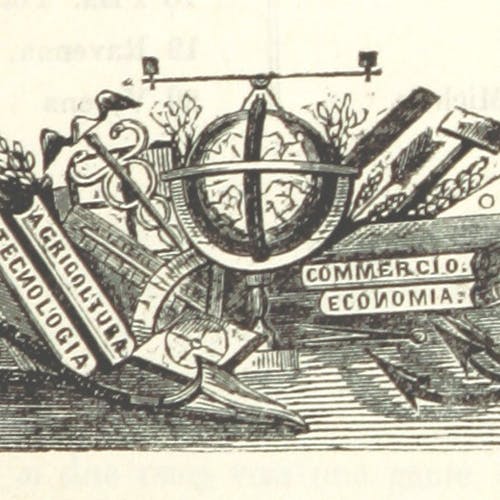What is a Prenuptial Agreement and Why Do I Need One?
- LegalI recently came across an article about sunset clauses in prenuptial agreements, and it reminded me that I haven’t really explained prenups before.

A prenuptial agreement is a legal agreement between you and your intended which lays out what happens to your finances if you ever get divorced. If you don’t have a prenup, you’ll need to figure out how to separate assets and debts during the divorce, or your state’s community property rules will do it for you. Even if you live in a community property state, you can still set up a prenup and it will supersede those rules. Whether you live in a community property state or not, it behooves you to have this all worked out in advance so you can tailor it to your specific needs.
Let’s set the scene when it comes to divorce. According to the US Census, annual divorce rates have been declining over the past 10 years, from 9.7 per 1,000 women aged 15+ in 2009 to 7.6 in 2019. But when you look at the percentage of marriages that eventually end in divorce, not just the annual rates, it’s about 43% of first marriages (Forbes, 2024). Those percentages are even higher for second (60%) and third (73%) marriages.
If that’s not reason enough, there are several other reasons to consider a prenuptial agreement:
1. Financial transparency: When do a prenup, you’ll be discussing issues like income, debt, assets, and the goals you have around caring for children and saving for college (if relevant). This helps you get really clear about the situation you’re marrying into. It also forces you and your partner to start talking about money if you haven’t already, which lays a firm foundation for the marriage.
2. Less emotional strain: The only thing worse than a divorce is a contentious divorce. If you can agree on what’s fair ahead of time, you don’t need to do all those sensitive negotiations when emotions are running high and you’re not feeling the love anymore.
3. Less costly divorce: As you might imagine, if you’ve agreed on all the basic provisions of a divorce before it ever happens, the process will be a lot quicker and easier. That translates into less money for the attorneys and more money for the two of you.
4. Protection for friends and family: A prenup allows you to protect assets you owned before you entered the marriage, and which you want to stay in the family or with business partners or friends. For example, you might have started a business and want to protect your partners against any risk of harm from an ex-spouse. You might have your grandma’s wedding ring and want to make sure it goes to your sister, you might have a painting you want to give to your best friend, or you might have kids from a previous relationship and you don’t want to disinherit them. Now is the time to get all of this into a legal agreement.
5. Fair debt protection: With financial transparency comes an understanding of the debt your beloved is bringing to the marriage. A prenup will help you decide which debts are whose in case you get divorced, so neither party is unfairly burdened with debt they had no hand in creating.
6. Fair spousal support: If you agree on spousal support beforehand, there is less chance of a dispute during the divorce itself. If one of you earns a lot more than the other, a prenup can protect the income of one spouse and also ensure that the lower-earning spouse is fairly recognized and supported for their non-financial contributions to the marriage.
7. Peace of mind: Above all else, if you have a plan in case of divorce, you won’t need to worry as much about what might happen to your finances in the future. That feels good.
A prenuptial agreement typically includes several key sections to ensure it’s clear and fair for both of you. It will vary based on your situation, but here are some of the main components:
1. Identification of Assets and Debts: This section lists all the assets and debts each party brings into the marriage, so it’s clear what each person owned and owed before the marriage.
2. Full Disclosure: Both of you will probably need to sign a statement saying that you’ve been completely honest about your assets and debts in the prenup.
3. Division of Assets: This section outlines how property acquired before and during the marriage will be divided in the event of a divorce. This is where you specify who gets what if you get divorced, so you can make provisions for yourself as well as for friends and family. You might even have separate provisions for children or dependents from a previous relationship.
4. Division of Debts: This section specifies how your debts will be handled if you get divorced. For example, if one of you brought a lot of debt to the marriage, you might decide that person would be responsible for those debts if you get divorced. But this section can also include provisions for how post-marriage debt will be handled.
5. Spousal Support (Alimony): Sometimes prenups will waive alimony, but they can also be used to set a minimum level of alimony for couples with very different levels of income, or when you plan for one partner to raise children rather than working.
6. Sunset Clause: Sometimes a prenup will include an expiration date, and in that case it would need to be renegotiated and renewed at that time. This clause is sometimes used if you think you’ll be on more equal financial footing after a certain period of time, or to ensure that one party didn’t enter the marriage just for the money they might get in a divorce. But if both of you agree that you’d like to continue the agreement when it expires, you have the option to do that.
7. Signatures and Legal Formalities: To put the agreement into effect, you’ll both need to sign the agreement and sometimes it has to be notarized.
I also have some notes and tips around how prenups work in practice. For example, prenups need to meet certain criteria in order to be enforceable, so keep those in mind when you’re working on the document. A prenup should be:
1. Fair: A prenup might not be enforceable if it’s inherently unfair or one-sided. This can happen particularly if one of you is much wealthier or earns much more money than the other, or both.
2. Voluntary: Both of you need to accept the agreement willingly, without pressure or coercion.
3. Based on full disclosure: If one of you fails to disclose everything in the prenup, it may not be valid, because both parties need a clear understanding to enter into the agreement in the first place.
4. Reviewed by independent legal counsel: Having independent legal counsel means you each have an attorney who can give you advice without a conflict of interest, and not be influenced by anyone else involved in the matter (for example, the other party). Often, both parties are required to have the opportunity to consult their own attorney. Even if it’s not required, it’s a good idea to have separate attorneys reviewing your prenup and looking out for your individual interests.
That said, when you “lawyer up,” things can get tense. Why not try a mediated prenup? Instead of a one-sided prenup drafted by an attorney and thrown over the fence to the other attorney, a mediator walks you through the agreement process together, so you can collaborate on a solution that works for both of you. Then your separate, independent attorneys can review the end result to make sure it serves each of you. You can probably imagine how this feels a lot more loving than the attorney-only version.
This seems like a good time to say a few words about the elephant in the room: a prenup isn’t the most romantic start to a marriage, is it? Here we are, madly in love, and one of us drops the prenup bomb on the other. I addressed this question in a previous post, along with a few myths about prenups, but I’ll just agree with you on this one. A prenup may not feel wildly romantic, but marriage and life in general aren’t all about romance, my dear. A prenup can really help this fledgling marriage by giving clarity and surfacing money problems before they happen, and it gets you talking about your money and goals. Bring a bottle of wine and some oysters and make your mediation sessions romantic, if that helps. At the end of the day, protecting yourself and your loved ones from financial unfairness or even ruin is more important than romance. I’m sorry.
I’ll end with a reminder: please make sure to review your prenup from time to time. If you need to make any changes, both of you will need to agree, make the amendments in writing, and re-sign the document. Whenever you have a big change in your financial or career status, or if you have kids together, it’s probably a good time to dust off the prenup for a review.
I hope you will never need your prenup and you spend your married life in unadulterated bliss. But just in case you end up in the 43%, I hope you’ll do one, anyway.



